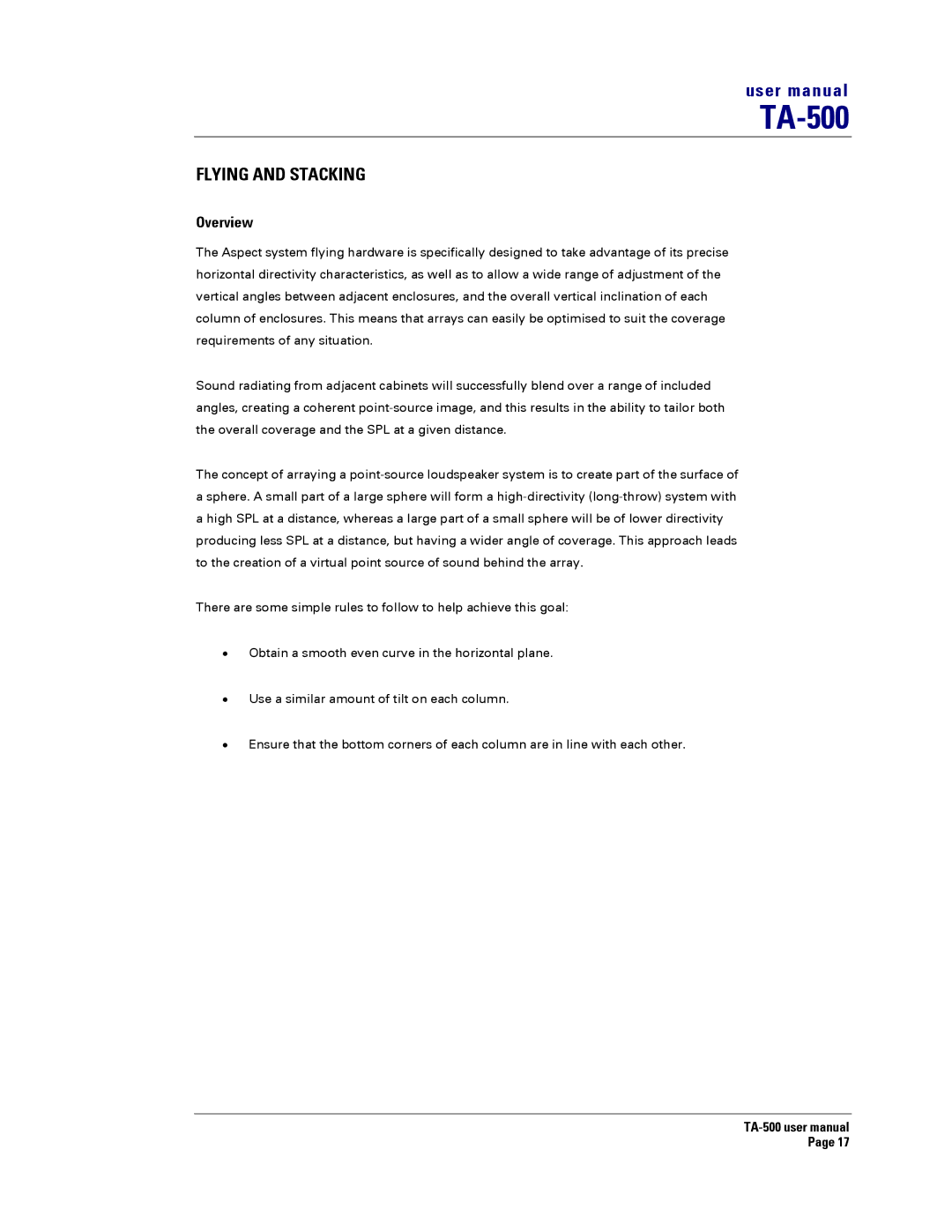
user manual
TA-500
FLYING AND STACKING
Overview
The Aspect system flying hardware is specifically designed to take advantage of its precise horizontal directivity characteristics, as well as to allow a wide range of adjustment of the vertical angles between adjacent enclosures, and the overall vertical inclination of each column of enclosures. This means that arrays can easily be optimised to suit the coverage requirements of any situation.
Sound radiating from adjacent cabinets will successfully blend over a range of included angles, creating a coherent
The concept of arraying a
There are some simple rules to follow to help achieve this goal:
•Obtain a smooth even curve in the horizontal plane.
•Use a similar amount of tilt on each column.
•Ensure that the bottom corners of each column are in line with each other.
